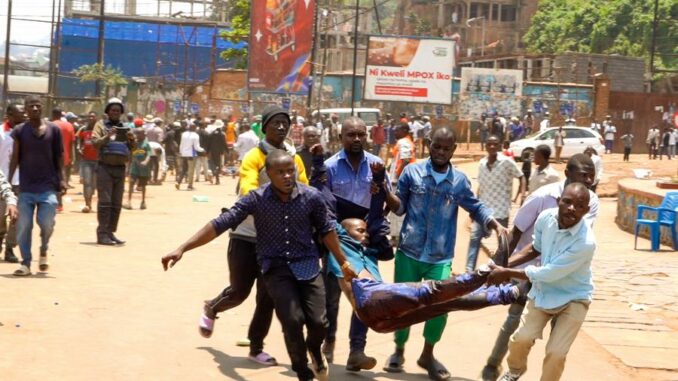
At least 11 people have been killed and dozens injured after explosions targeted a rally in the eastern Congolese city of Bukavu, where M23 rebel leaders had gathered. The attack took place on Thursday February 27, shortly after M23 leaders, including Corneille Nangaa, addressed a crowd in the central part of the city. The blasts left bloodied bodies on the ground, with video footage showing a chaotic scene as people fled. Among the casualties were several individuals affiliated with the M23, with reports suggesting that attackers may have been among the victims. Local officials and rebels offered conflicting accounts of the death toll and the identity of the attackers.
The M23 rebel group has accused the Congolese government of orchestrating the bombing, labelling it a “cowardly” act. In a statement, the group condemned the Congolese authorities for what they described as a plan to “exterminate civilian populations.” Meanwhile, President Felix Tshisekedi of the Democratic Republic of Congo (DRC) condemned the attack as a “heinous terrorist act” and blamed a “foreign army illegally present” in Congo. The rebels, supported by approximately 4,000 Rwandan troops, have been in control of key cities in eastern Congo, including Goma and Bukavu, as part of their ongoing offensive.
The M23’s march across the region has raised international concern due to the strategic importance of the area, which is rich in minerals like gold and coltan. Despite claiming to protect Tutsis and Congolese of Rwandan descent, the rebels’ actions have sparked tensions, with Rwanda accusing the Congolese government of allying with Hutu fighters responsible for the 1994 Rwandan genocide. As the conflict escalates, with over 3,000 people killed, the region remains deeply unstable, and it is unclear how much longer the violence will continue.
